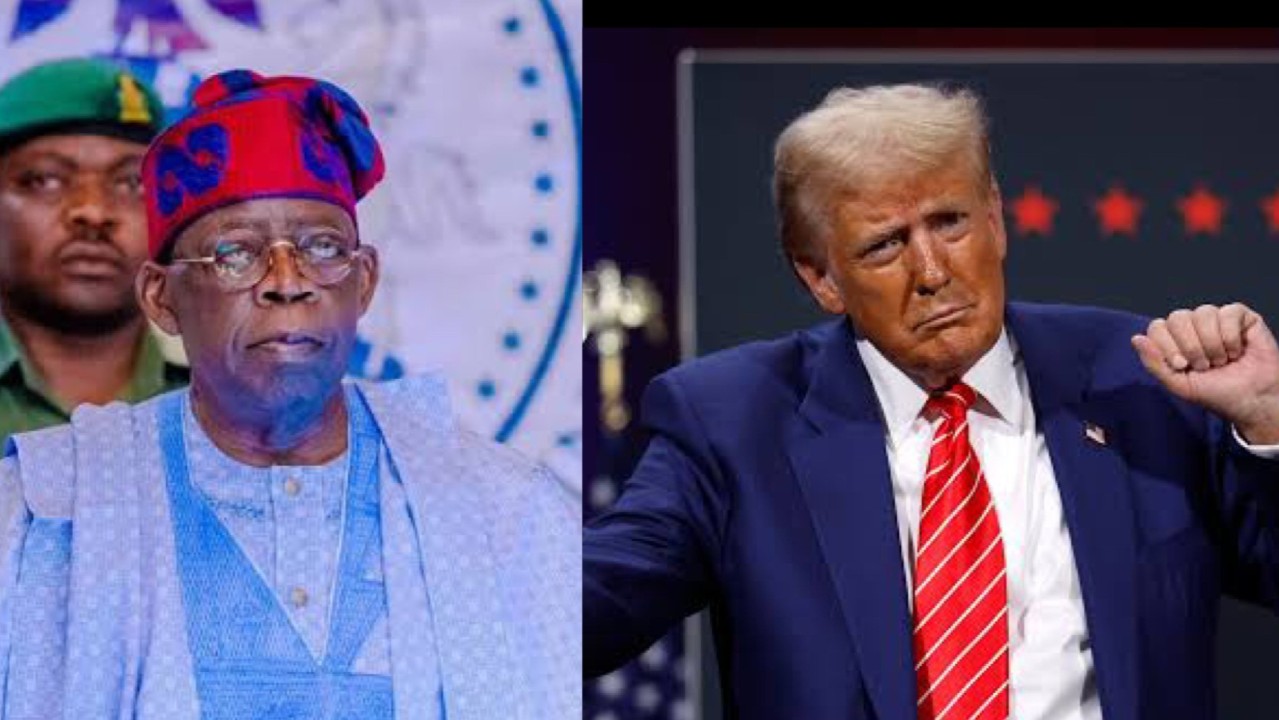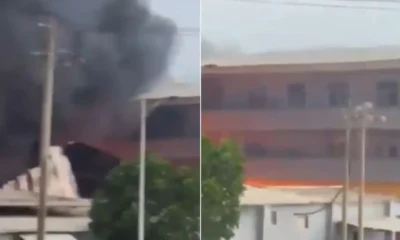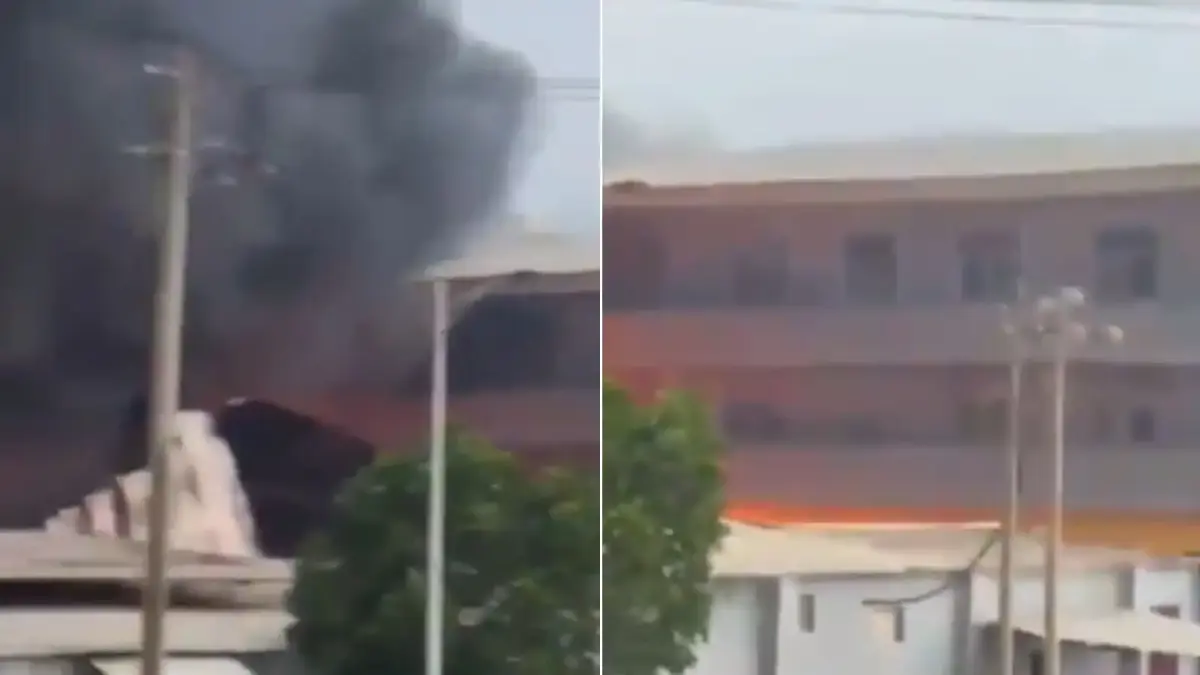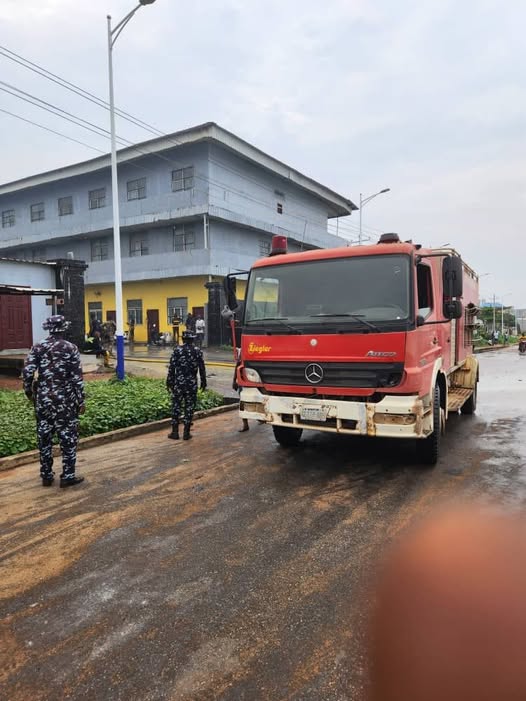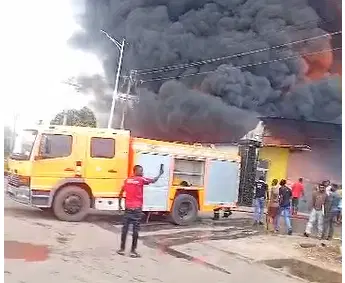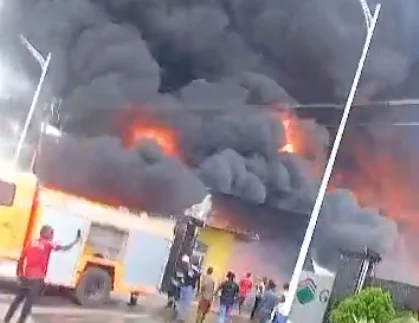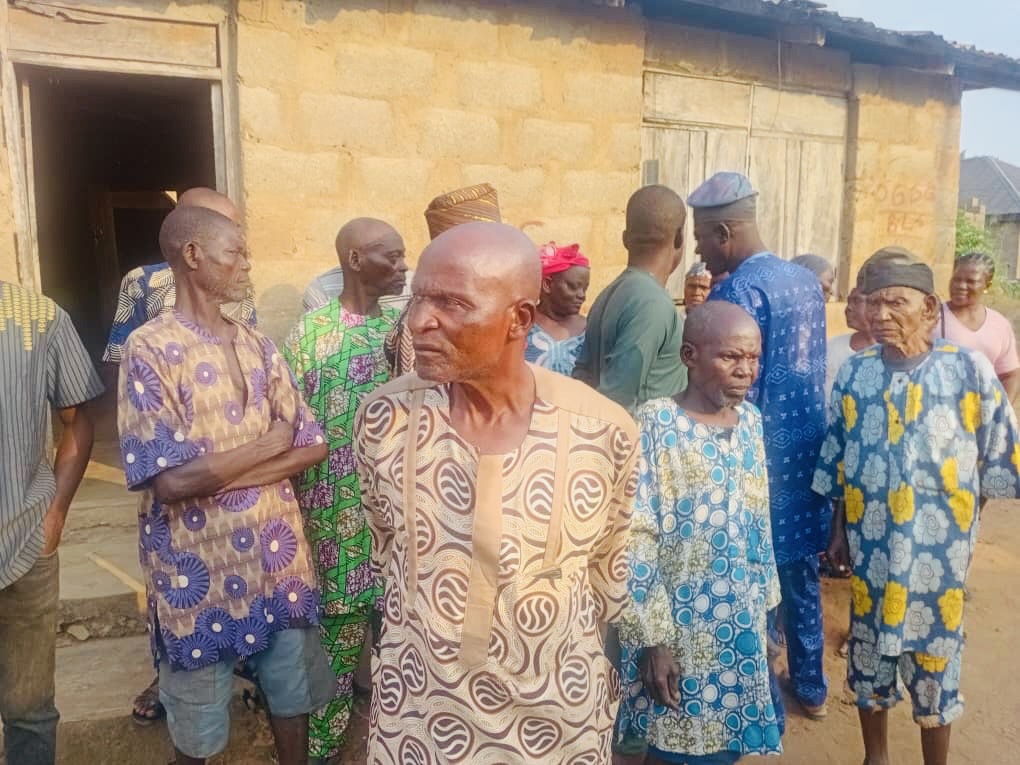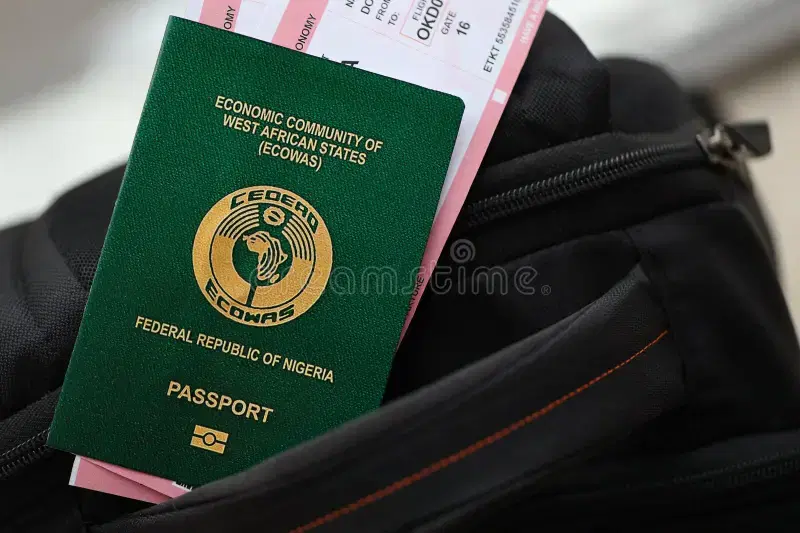The United States House of Representatives Subcommittee on Africa will hold an open hearing on Thursday, November 20, 2025, to examine President Donald Trump’s recent redesignation of Nigeria as a Country of Particular Concern (Christian Genocide).
The CPC designation, if ratified by the Senate, would allow the US to impose sanctions on Nigerian officials found complicit in religious persecution and limit certain forms of bilateral assistance.
It also signals to the international community that religious freedom in Nigeria remains under serious threat.
The hearing, scheduled for 11:00 am in Room 2172 of the Rayburn House Office Building and available via live webcast, will be chaired by Representative Chris Smith (R-NJ).
It will feature two panels of witnesses, including senior US State Department officials and Nigerian religious leaders.
The invite to the members of the Committee on Foreign Affairs, sighted by The PUNCH, read, “You are respectfully requested to attend an open hearing of the Committee on Foreign Affairs to be held by the Subcommittee on Africa at 11:00 a.m. in Room 2172 of the Rayburn House Office Building.”
According to the invite, panelists will include Senior Bureau Official of the Bureau of African Affairs, Jonathan Pratt, and Deputy Assistant Secretary of the Bureau of Democracy, Human Rights, and Labor, Jacob McGee.
The second panel will feature the Director of the Centre for Religious Freedom, Ms Nina Shea; Bishop Wilfred Anagbe of Makurdi Catholic Diocese in Nigeria; and Ms Oge Onubogu of the Centre for Strategic & International Studies.
The congressional hearing is expected to review not only the scope of religious persecution in Nigeria, but also potential policy responses, including targeted sanctions, humanitarian assistance, and collaboration with Nigerian authorities to prevent further violence.
On October 31, 2025, President Trump designated Nigeria a ‘’Country of Particular Concern’’ for religious freedom violations. The move has sparked debate over rising attacks on Christians in Nigeria and the possibility of US intervention.
In designating Nigeria as a Country of Particular Concern, Trump cited alleged severe violations of religious freedom, particularly the persecution of Christians.
He claimed that Christianity is facing an existential threat in Nigeria, with thousands of Christians being killed by radical Islamists.
Trump warned that the US would take action, including potential military intervention, if Nigeria did not address the issue.
The US President also threatened to halt all aid and assistance to Nigeria should President Bola Tinubu’s administration fail to end the alleged persecution and killing of Christians.
“If the Nigerian Government continues to allow the killing of Christians, the USA will immediately stop all aid and assistance to Nigeria, and may very well go into that now-disgraced country, ‘guns-a-blazing,’ to completely wipe out the Islamic terrorists who are committing these horrible atrocities.
“I am hereby instructing our Department of War to prepare for possible action. If we attack, it will be fast, vicious, and sweet, just like the terrorist thugs attack our cherished Christians,” he said on November 1, 2025.
President Tinubu, however, described the claim as a misrepresentation of Nigeria’s religious reality.
Reacting through a statement on his official X handle, Tinubu said the claim failed to reflect the country’s constitutional commitment to religious liberty.
‘’Nigeria stands firmly as a democracy governed by constitutional guarantees of religious liberty. The characterisation of Nigeria as religiously intolerant does not reflect our national reality.
“Religious freedom and tolerance have been a core tenet of our collective identity and shall always remain so. Nigeria opposes religious persecution and does not encourage it,” the President said.
Trump’s designation comes amid repeated attacks on Christian communities in Nigeria, including killings by Islamic extremist groups, kidnappings, and the destruction of churches.
The bill is also before the Senate of the United States, sponsored by Senator Ted Cruz.
Nigeria was first designated CPC by Trump in 2020, before his successor, President Joe Biden, removed the country from the list after defeating Trump.
Bishop Anagbe, who will testify at the House Committee hearing, had recently voiced his concerns over Christian killings in the country.
Speaking at an event in the United Kingdom Parliament on March 25, 2025, Bishop Anagbe denounced the mass killing of Christians by Islamist extremists and militant Fulani herdsmen.
Visiting the UK as a guest of Catholic charity Aid to the Church in Need, he told parliamentarians how his flock had seen their homes torched and were forced to flee to internally displaced persons’ camps.
The bishop said that Benue State had been attacked by Islamist extremists and Fulani herdsmen targeting Christian communities, and had seen farmers driven from their land, churches burned, and priests, religious, and lay members killed.
“The militant Fulani herdsmen bear down on defenseless villagers without consequence.
“They follow orders to conquer, kill, and occupy. They attack even those who have managed to escape into our IDP camps,” he told the UK parliamentarians.
Congressman tackles Tinubu
Riley Moore (R-WV), in an interview with Fox News on Sunday, said, “We’ve already started that investigation, and it’s the House Appropriations Committee; we’re working with the other relevant stakeholders in Congress, including the Foreign Affairs Committee.
“Also working with the leadership… to present findings to the President as soon as we can, and once we have some real ground truth from our perspective.
“Obviously, we’ve been working with the State Department and (others) in the White House, and we’re in constant coordination and communication on this issue. We’re going to get to the bottom of this.”
According to him, what is going on in the country “is horrific – these killings of brothers and sisters in Christ, but we, and as President Trump has said it, we’re going to stop this.”
On Tinubu’s push back that Trump claims do not represent Nigeria’s reality, Moore countered, saying, “Unfortunately, that is completely false. I mean, there are states in Nigeria that have blasphemy laws, people who are facing the death penalty right now for blasphemy against Islam.
“There’s a person right now who is held in prison for defending himself from an attack by a Muslim militant from the Fulani tribe.
“He defended himself, and he’s facing the death penalty. So, there is a serious persecution happening in Nigeria, and President Tinubu, who is in a difficult position and trying to protect his interest there in that country, but they are complicit in this to one degree or the other with statements like this.”
On the Christian-Muslim killing ratio, Moore said, “There are Muslims that are being killed there, but the deaths that we have been able to garner from the facts on the ground are five to one, five to one Christians versus other minority, other religious affiliations in that country.”
He insisted, “It is five (Christians) to one Muslim who is being killed in Nigeria.”
When asked if the US should have a role in what seems to be an internal issue in another sovereign country, Moore said, “I think we absolutely do. We are a Christian nation and a nation that believes in the values and virtues of standing up for people who are being persecuted.
“That destination that the President just did to name the country a Country of Particular Concern unlocks … different levels the President can use against that country, sanctions being one of them, withholding development dollars, and restricting financing from financial institutions.
“So there’s a lot that can be done there, but the President has put all options on the table, including military kinetic action.”
Pope laments violence
Pope Leo XIV has voiced concern over violence allegedly targeting Christians in Nigeria and other countries.
The Pope’s comment on Sunday comes about two weeks after President Trump threatened military action in Nigeria over an alleged genocide against Christians in the country.
In a post on his verified X handle, @Pontifex, the Pope lamented that Christians were suffering discrimination and persecution.
He cited Nigeria and some other African countries, as well as Bangladesh in South Asia, as hotspot regions where worship centres were allegedly being targeted by attackers.
“In various parts of the world, Christians suffer discrimination and persecution. I think especially of Bangladesh, Nigeria, Mozambique, Sudan, and other countries from which we frequently hear of attacks on communities and places of worship,” the Pope said. “God is a merciful Father who desires peace among all His children!”
He also prayed “for the families of Kivu, in the Democratic Republic of the Congo, where in recent days there has been a massacre of civilians. Let us pray that all violence may cease and that believers may work together for the common good.”
US congressman’s defence
Last week, US Congressman Bill Huizenga, during an interview with Arise TV, said Trump was unlikely to launch a military action in Nigeria.
According to the lawmaker, Trump probably wanted the killings allegedly targeted at Christians and other Nigerians to end.
“I too was surprised by the comments that they came out; that the President (Trump) came out that forcefully. I suspect that that is not a high priority of having actual military intervention, specifically in Nigeria.
“But I think he does want to make sure that, from his view, the genocide that is happening specifically against Christians, but also others in Nigeria, needs to stop.
“While I don’t envision a surprise attack, I don’t envision that there’s going to be a military response,” he said.
He added, “Frankly, this President has been someone who has pursued peace rather than just expanding war. So I think he would be very selective before he did anything militarily.”
According to him, economic sanctions would deter terrorists from funding their activities.
“Sanctions really cut off the flow of money, cut off the flow of travel. We don’t know who exactly is financing many of these operations, from the Fulani or Boko Haram in the past.
“And what I do know is, though, if we put economic pressure on them and the inability to move money around, that will have an impact, I think a positive impact,” he said.
He urged the Nigerian government to take action to check insecurity in the country.
FG peace emissaries
In a bid to restore peace and foster inter-communal harmony in Plateau State, President Tinubu dispatched an emissary, Dr Abiodun Essiet, to the state last Thursday.
Essiet, a Senior Special Assistant on Community Engagement in the North Central Zone, met Christian clerics and Fulani Miyetti Allah community leaders.
She also paid a courtesy visit to the Chairman of the Regional Church Council in Barkin Ladi, Rev. Ezekiel Dachomo, who has been a voice of Christian communities in the state.
According to a statement by the Special Adviser to the President (Information & Strategy), Bayo Onanuga, Essiet also held a closed-door meeting with the Irigwe community, the Miyetti Allah group, and representatives from the Youth Council of Bassa Local Government Area.
Essiet said the President remained committed to peace and inclusive governance, noting that the community-based peace structure served as a key instrument for grassroots unity, dialogue, and long-term stability in the North Central region.
During the visit, the conflict between the owner of Agha Farm in Gyel district of Jos South, David Toma, and some herdsmen was resolved.
The statement reported that Toma seized two cows following the destruction of his farm.
“On November 15, the MACBAN Chairman of Bassa LG, Alhaji Isah Yau, paid a compensation of N500,000 to Toma, who subsequently released the cows. All parties signed an undertaking to embrace peace in the state,” the statement read.
punch.ng
FOLLOW US ON:

